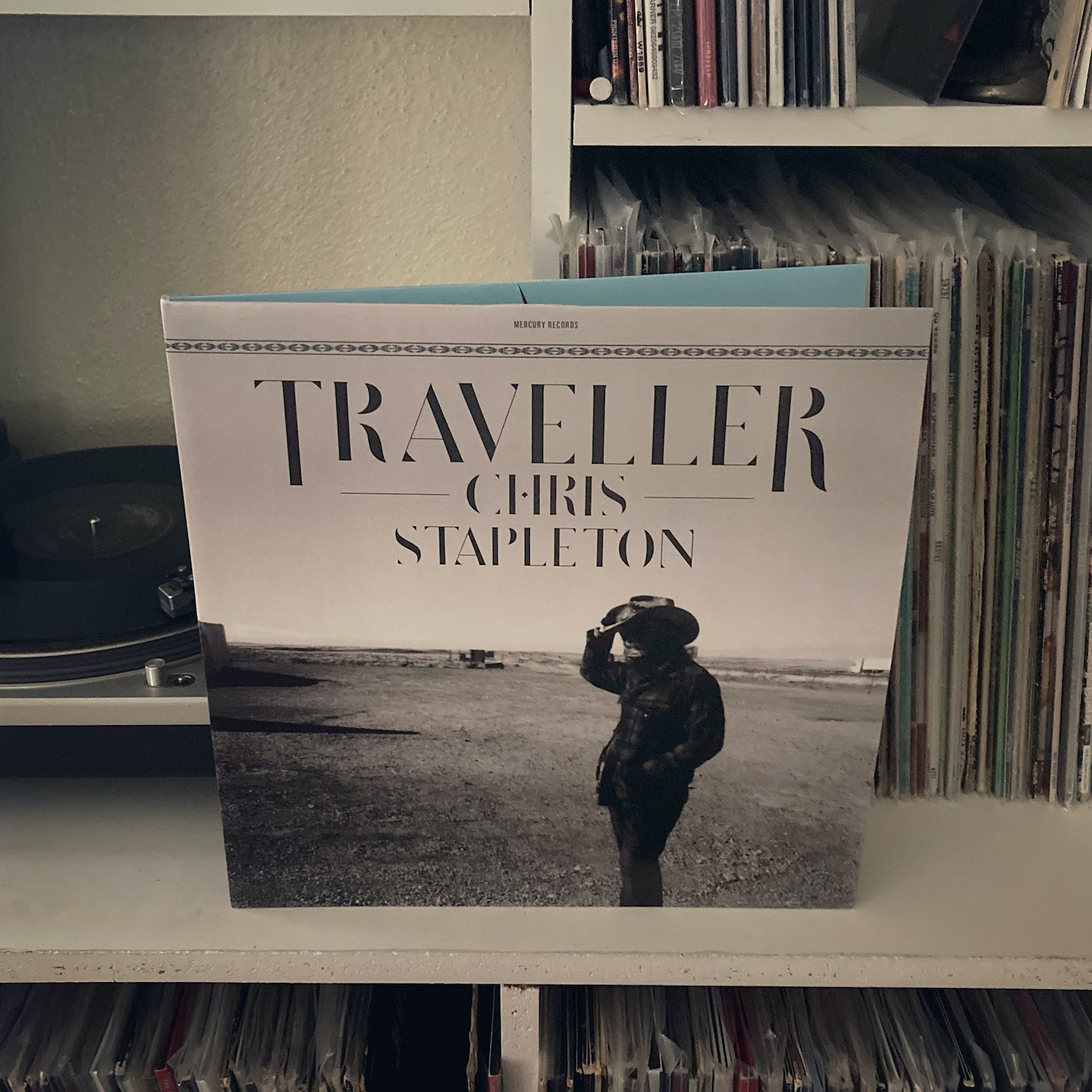
There is a common thread in the world of musical appreciation that people will write off Country music with absolute prejudice.
Admittedly, much of it is deserved: the genre has been dominated by watered-down Southern twanged pop music for the last few decades. I don’t blame anyone for hearing Rascall Flatts or Keith Urban and wanting nothing to do with it.
But the songs topping the country charts are a poor representation of the genre—which is itself deep and rich, full of tragic storytelling, wonderful musicianship, and skillful songwriting.
Ever since catching his incredible SNL performance of “Parachute,” Chris Stapleton has been my prescription for anyone who dismisses country music wholesale. And so far, that treatment has a 100% success rate.
Traveller, Stapleton’s debut, has been near the top of my wantlist for a few years now, but it has proved difficult to obtain. On a number of occasions, the site I was buying it from sold out while it was still in my cart.
It’s easy to tell why it’s so in-demand—the album is incredible. So incredible in fact that it was able to launch him out of the Country Music ghetto and land him crossover success without any gimmicks. He even did a duet performance with Justin Timberlake at the CMAs, for crying out loud. It’s not that there’s never been a crossover country hit—there have been scores of them. But often, “country music” isn’t enough for these acts, their notoriety coming after fusing with other genres (e.g. Cowboy Troy) or diluting the conventions of their own genre (e.g. Tayor Swift). At times, it feels like there may even be a sense of embarrassment about their roots: a bristling at the sound of lap steels or a deep Tennessee twang.
Stapleton has absolutely no reservations. In fact, Traveller at times feels like an aggressive reclaiming of country music: a bold wresting of country music from the hands of the Top 40, a feralization of a once fierce musical language that has grown fat on the cushions of a plush couch. Traveller is a shitzu being bred back into a wolf.
Country music was never meant to be a companion to $200 blue jeans and handpainted wall signs. It wasn’t created to be played from the Bluetooth stereo of an $85,000 pickup truck with no body damage. Country music was the soundtrack of outlaws and outsiders. It was the original punk rock. And while legends like Johnny Cash, Mearle Haggard, and Willie Nelson are well regarded for embodying this sentiment, modern country seems afraid to get its hands dirty.
Not so for Chris Stapleton. He plunges his arm deep into the filth of country music’s fringe history and pulls out gem after gem after gem. And he does so while embracing the conventions of the genre instead of shying away from them.
“Traveller” opens the record with the same nomadic waywardness that informed the old outlaws, a pedal steel singing above his own voice, which transforms into a full-throated roar at his higher registration. The aforementioned “Parachute” is fiery and apocalyptic, a fitting accompaniment for the look of the man himself: unshaven and long-haired, clad in a trenchcoat and cowboy hat like some Southern doomsday prophet. “Was it 26” is dark and brooding, treating the foolishness of youthfulness like a lingering curse that he’s still paying for. “Outlaw State of Mind” is similarly wicked, managing to be foreboding and catchy in one swoop, its coda marked by a manic harmonica.
Even when he turns down the hellfire, it’s still hot to the touch. There’s still a quiet tragedy in the love songs. “Fire Away” comes to grips with the potential devastation that can come from offering all of yourself to someone. “Tennessee Whiskey” compares his lover to the flavors and sensations he knows from different liquors—the same liquors that cause him all sorts of grief in other songs. The complexity of the metaphor is lost on the narrator.
The throughline of the album though of course is Stapleton’s excellent songwriting, which is delivered with one of the finest voices in country music and a band that just will. Not. Quit. “Nobody to Blame” in particular—which won a number of awards—is so quintessentially perfect a country song that I was sure it was a cover song.
But perhaps this album can be best summed up by my wife’s reaction to my playing it. “Are you listening to a country record?” “Yeah, but it’s good country.” “So it’s not about, like, losing his pickup or whatever?” No, it most certainly is not.